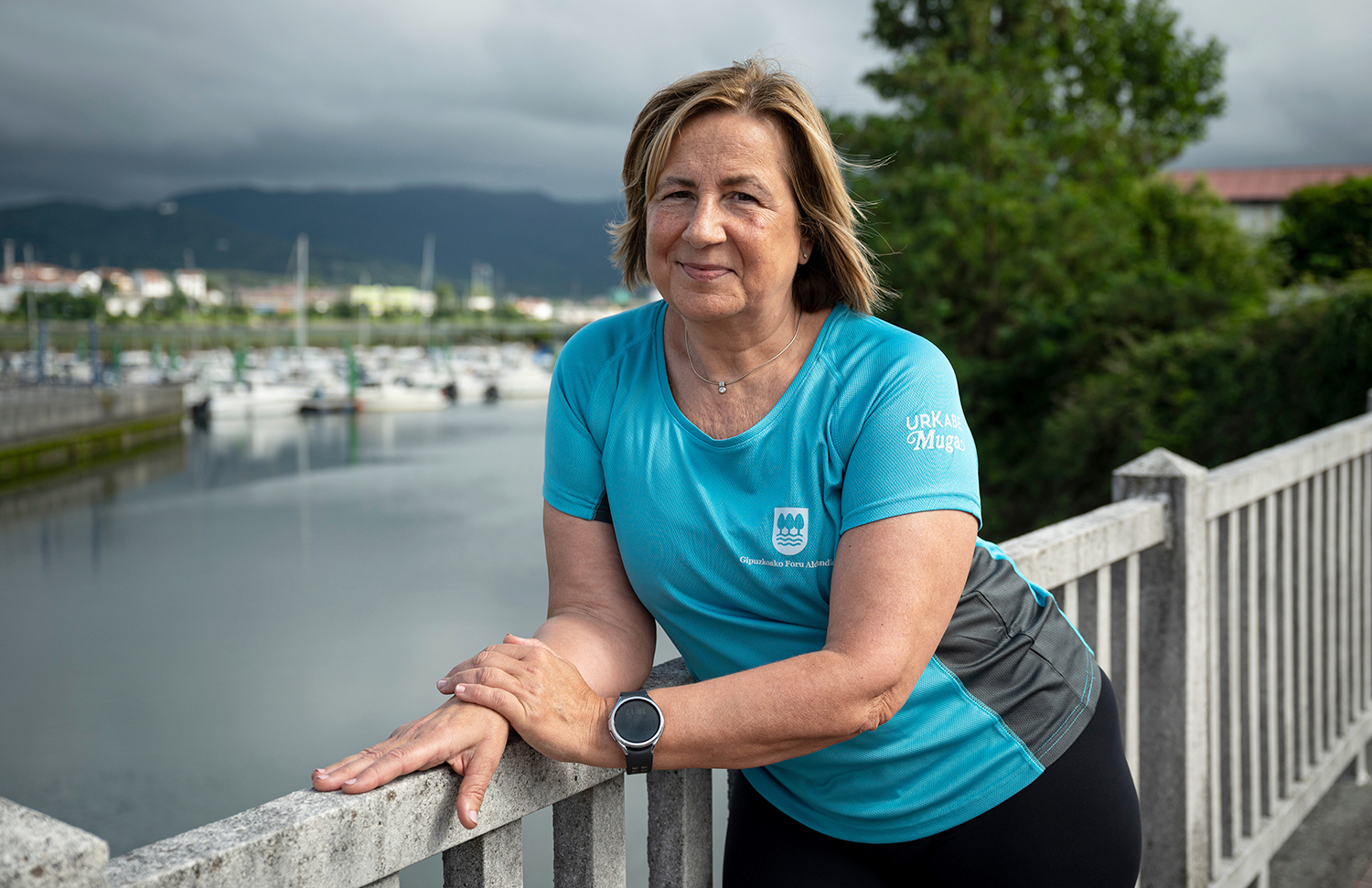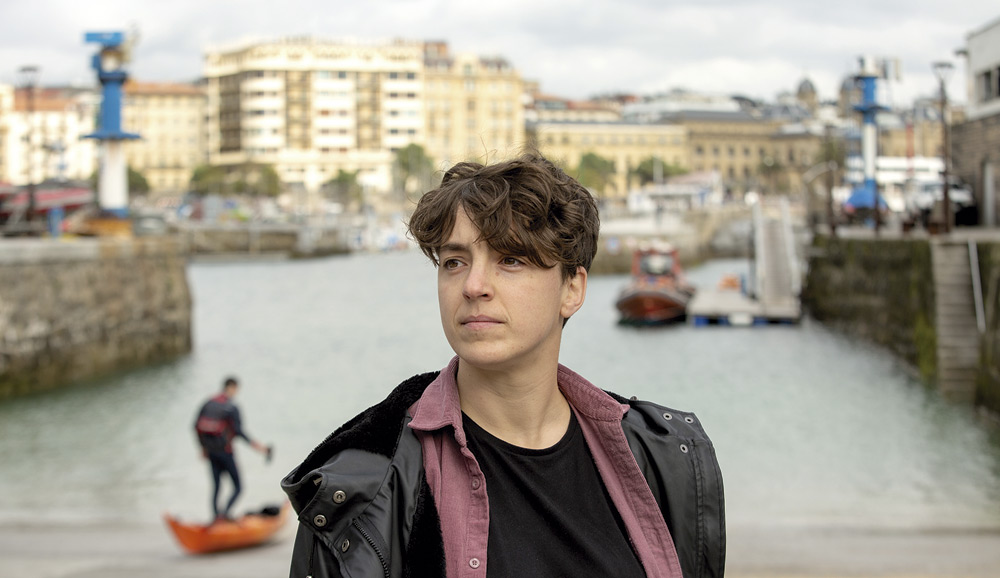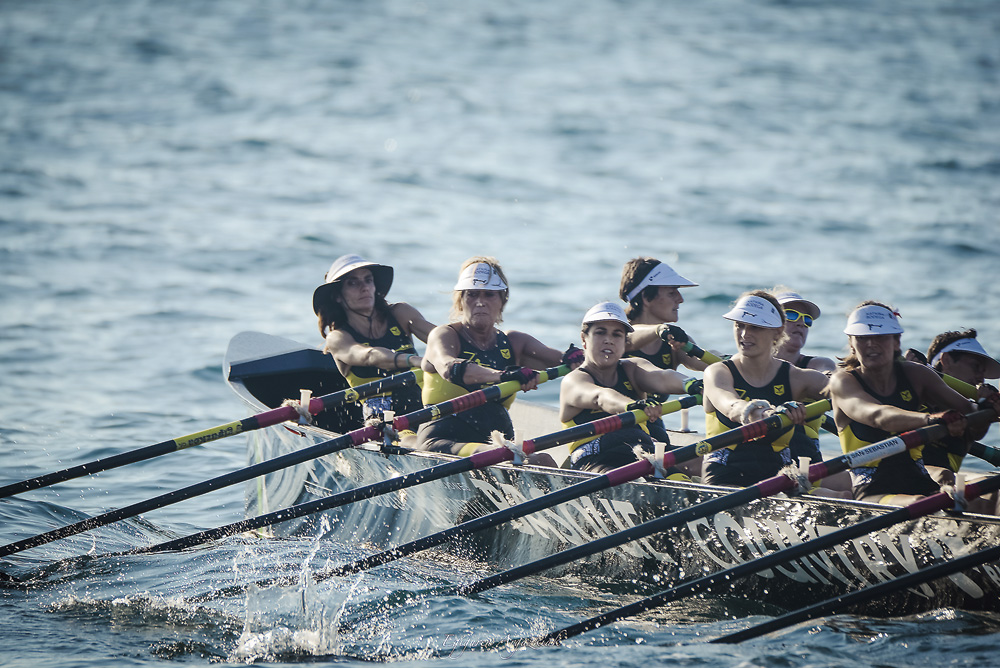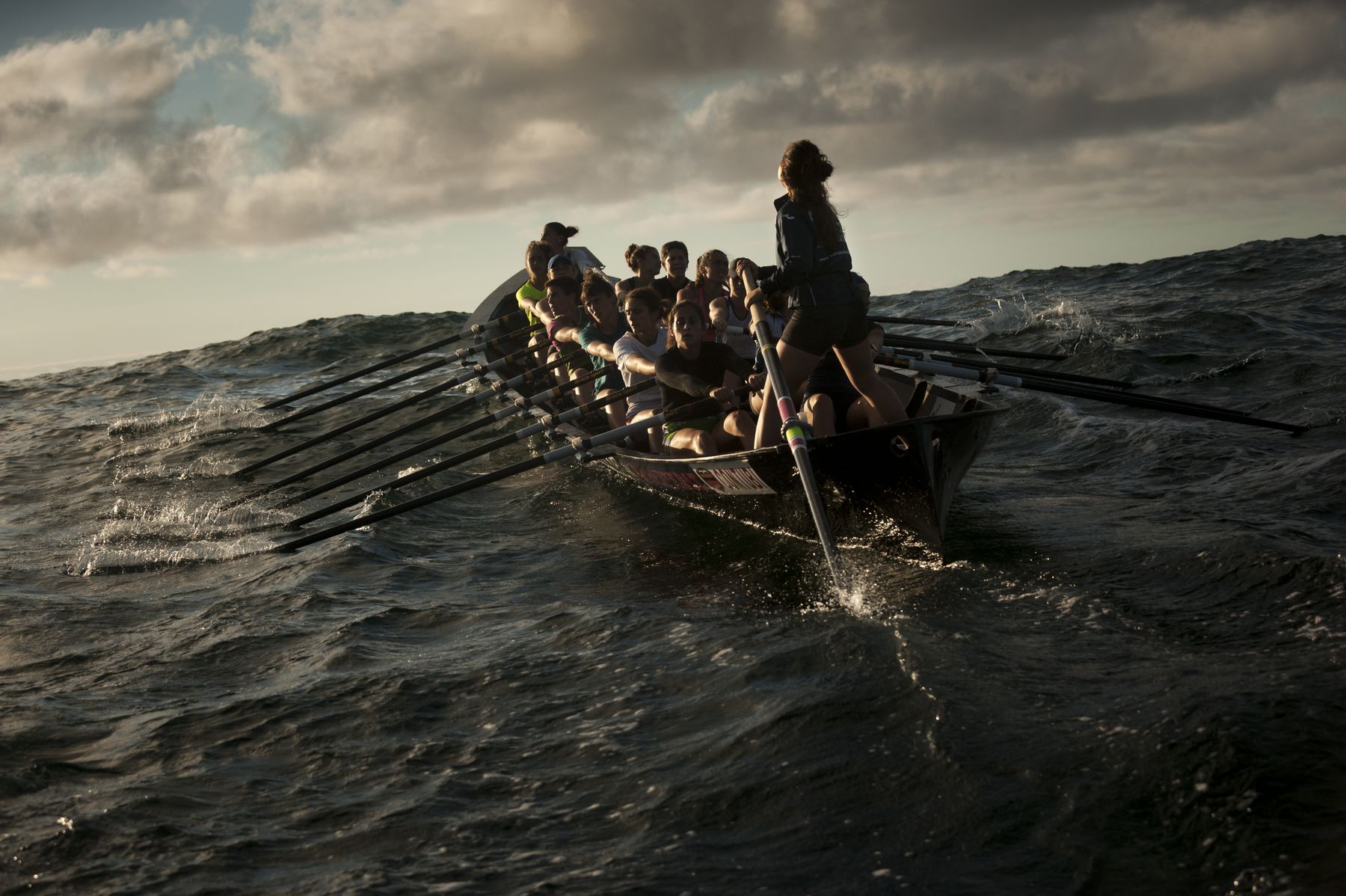Deusto's female trainee, with a great batch
- It's been eight years since 56 women got together, the oars got to the releases and started the first female traineras league. Since then, it has been repeated every year, and although at first it was difficult to train four traineras, more and more girls are taking the paddles. In the 2017 Summer Traineras League, nine rowing clubs from Euskal Herria have competed: Donostia Arraun Lagunak, Hernani, Hibaika, Kaiup-Donostiarra, Lea-Artibai, Orio, Portugalete, San Juan and the rowing group Deustu that we are talking about today.
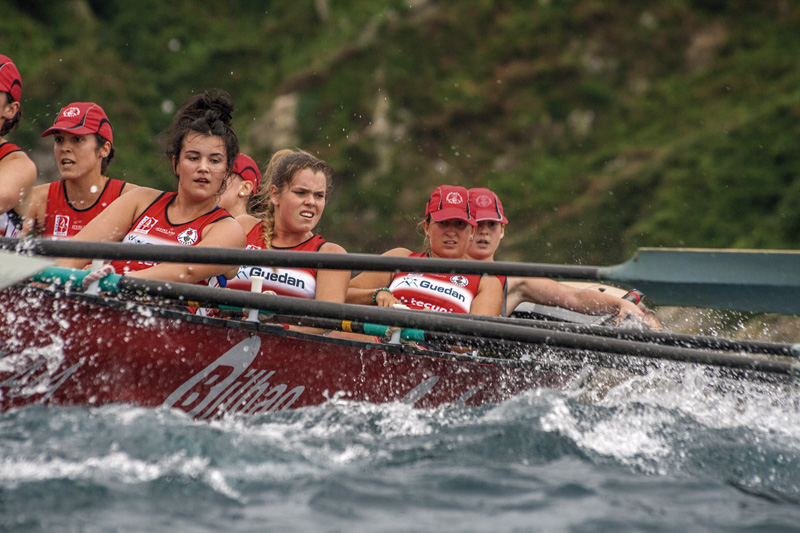
Although Deustu Arraun Taldea was founded in 1981, in the 2015-2016 season the women of the club were made with the trainera for the first time. From October, ten Deusto reers, three from Portugalete and three from Kaiku, Iberia and Ondarroa were trained. And that is, even though the illusion and the will are fundamental, they're not enough for a trainer to get ahead. The first thing you need is people; thirteen people who will row into the boat, the skipper, and so many other rowers in order to make changes in the season.
Deusto has been the first Biscayan team to complete a train, despite having previously participated in the boat of the selection of Bizkaia. In the summer of 2016 it was seventh in the League of Gipuzkoa and also in the Regatas de La Concha. In the 2017 season, however, the team has climbed a little more in the LaLiga ranking and has set itself sixth. In addition, they have been the champions of the Bizkaia Traineras Championship and have re-ranked to contest the Concha Flag, getting the eighth place.
They say it is too early to look at the next season, as there are still many months left for it to start competing. However, around twenty women are currently training at the Deusto campus. Some of them have previously participated in other rowing teams, such as the Aiala Uribelarrea. Following the path of ancient sardines, the Uribelarre has crossed the river Nervión from one shore to the other, as it is from Santurtzi.
He says that he inherited especially the fondness of his parents and that he began to row at the age of eleven. The 25-year-old Bilbaíno is a master of the Bilbaíno club, and has become a coach for Athletic Club. He added that he "goes crazy" to combine studies, work and training. How many hours do rowers train a day? How many days a week? How many months a year?
Six weekly training sessions
Deusto girls train between late October and early September, about ten and a half months, six days a week. The replacement Laura Cuesta explained that in winter each practice his physical training on the schedule he can, at the place they have in Zorrozaurre. On weekends, on the other hand, they meet in the morning to get the trainee out into the water.
He doesn't have too many problems adjusting schedules, besides living in Bilbao, because he's a student. Therefore, he has free evenings, weekends and summer months to paddle. However, in other cases it is not usually as simple, and training needs to be combined with working hours and holidays. Moreover, although the majority live in Bilbao, some have to travel on a daily basis.
In any case, and although it is essential to have a minimum of reels, other things are necessary in order to be able to train a trainee, such as money.
“In our league we receive no economic prize”
You have to buy and pay a lot of things to get the boat going. First, the trainera. Depending on the type of packaging, the price will be different. The most widely used boat today is the “Platanito”, manufactured by the company Amilibia de Orio, and costs about 40,000 euros, according to data provided by several rowing associations.
There are, of course, other costs to this figure. For example, oars, trips, coaches, facilities, and vans, cars and other elements needed to bring the boat back and forth. In the case of the women of Deusto, the material that has been used so far had already been used by the club, but the fans have advanced that they will buy rowing for the next season.
To finance all this, the club receives subsidies from partners and sponsors. Countertops, on the other hand, receive little money. In all male leagues there are economic prizes, as well as in the Women's League (Euskotren League), but in the league that Deusto has disputed so far there is no reward whatsoever. Therefore, the club has only won for qualifying on the San Mamés La Concha Flag. Specifically, they received EUR 5,000 in 2017 to be shared among all the reers who participated in the test.
However, this has not caused much concern among the Deusto remers who, as they have explained, are engaged in dealing with issues that outweigh economic and material resources.
Network of contacts and doses of adrenaline
There are those who say that rowing is a tough and demanding sport. It takes time and willingness to practice. It inevitably requires discipline and obstinacy, diet monitoring and complete continuity. However, more and more women are taking over from the old Batelera de Pasaia and are encouraged to paddle. Why? What attracts the rowing?
For Laura Cuesta, the important thing is the people, the relationships: “At Deusto’s trainee we’ve created a team of everyone and it’s very nice to feel part of it.” In addition, he explained that this is a sport that requires a lot of effort and suffering, but that what he gives in compensation is more than that: “What we feel after a tough regatta or training is amazing, the rowing is as sweet as it is hard.”
According to Uribelarre Aiala, on the other hand, it is the way to “disconnect” and “enjoy” the world: “It’s true that we spend many hours training, and I’ve often thought about what I’m doing. But I can't leave it, I can't explain exactly what it gives me, I would say a terrible adrenaline. It’s a very special sport.”
At first, by the time it was rainy, Miguel Strogoff thought it was great. They were installed on the roof of the sports club to spend the mornings in the new and colorful machines. For the second week, someone told him that the walking machine, a stone mill that could not be... [+]
Aurtengo Donostiako Estropaden bigarren igandean, emakumeak erlojuz kontra bota zituzten uretara itsasoaren baldintza bortitzek “behartuta”. Gizonezkoak, berriz, tradizio sakratuari eutsiz, launaka bi txandatan.
Ten trainers will participate in the qualifying phase of the women’s Euskotren League after Zumaia and Hondarribia, who had already registered, refused to compete. Hondarribia retracts because she hasn’t put enough girls together to form a team; and Zumaia has some internal... [+]











